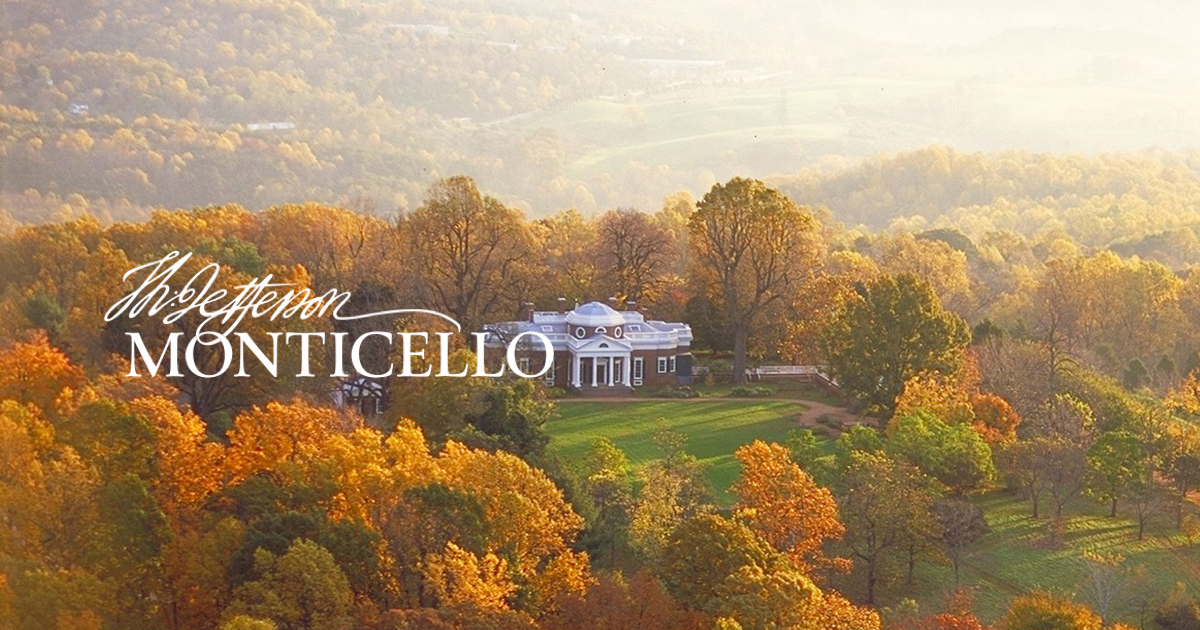Please forgive my ignorance on this. In the current issue of America's Civil War I was reading an article on the defense of Culps hill and in it a Union General is quoted as saying. "every man deserves a warm biscuit and ice cream". (Brig. General Greene). Was he misquoted? If he wasn't was the ice cream he referred to the same thing we think of as ice cream today? If so I would love to see if anyone here has a recipe or an example of ice cream maker i would love to see them. Now I wouldn't pull one out at an event but it might make an interesting add in for a Company party. Thanks in advance.
Announcement
Collapse
No announcement yet.
Ice Cream?
Collapse
X
-
Re: Ice Cream?
Ice cream came back to Monticello with Thomas Jefferson, so you're good to go with it for a CW party. The recipe he and John Hemings brought back from France is available:
 The first recorded American recipe for ice cream is written in Thomas Jefferson's hand. He served it at the President's Mansion when president and enslaved chefs made and served it at Monticello.
The first recorded American recipe for ice cream is written in Thomas Jefferson's hand. He served it at the President's Mansion when president and enslaved chefs made and served it at Monticello.
Try these links, too:
 Ice cream is dairy dessert made from milk and cream, ice cream has many flavors and fans. Ask questions about calories, brands and flavors here.
Ice cream is dairy dessert made from milk and cream, ice cream has many flavors and fans. Ask questions about calories, brands and flavors here.
If you do use eggs, pay close attention to the way in which they are prepared. There is a small but real risk of salmonella with those recipes that don't cook the eggs at all. Some people choose to take the risk, some don't.Becky Morgan
-
Re: Ice Cream?
Ice cream was pretty much the same as modern hard ice cream (not the soft-serve kind), though with some different flavors. It could either be literally cream, or frozen custard made with eggs. You could make it without an ice cream maker if necessary, as described in the links.
There are lots of period recipes. Here are a couple. To get the citations, click on the book title at the top, when you get to the link.
What I find more intriguing about the phrase "a warm biscuit and ice cream" is... did he mean them separately, referring to the usual kind of biscuit we think of, or was he referring to eating ice cream with Savoy biscuits (ladyfingers)? Miss Leslie's Directions for Cookery, 1851, says "Send round always with ice cream, sponge cake or Savoy biscuits."
Hank Trent
hanktrent@voyager.netHank Trent
Comment
-
Re: Ice Cream?
I read about some North Carolinians who came across ice cream and being good forgagers, some placed it in their haversacks while others in their kepis. What a rough introduction to a favorite dessert item. Opps.GaryYee o' the Land o' Rice a Roni & Cable Cars
High Private in The Company of Military Historians
Comment
-
Re: Ice Cream?
It's funny that ice cream was brought up, because I had a similar thought going through my head with a photo that Matthew Rector and I saw today at the University of Kentucky "King" Library. No "biscuits" in this, but the photo was taken at Camp Boone in Louisville, KY (Pre-War ap. 1860) and there in the back ground was a tent that said Ice Cream on it. Due to the photo being fragile and part of the "Special Collections", we were not allowed to take a photo or make a copy of it, but it did spark some interest.
I was thinking to myself..."Is this the same Ice Cream as we know it today?...I personally thought Ice Cream came several years later after the war, but I was no where close! Interesting stuff!
Comment
-
Re: Ice Cream?
John Q. Adams' wife served oyster ice cream for parties at the White House. It was reportedly her favorite flavor. Bet you that won't be the 32nd flavor any time soon.:tounge_smAndrew Turner
Co.D 27th NCT
Liberty Rifles
"Well, by God, Iíll take my men in and if they outflank me Iíll face my men about and cut my way out. Forward, men!Ē Gen. John R. Cooke at Bristoe Station,VA
Comment
-
Re: Ice Cream?
These photos are actually online, avaliable through the Kentuckiana Digital Library. Here is the photo Micah referenced, however a high res scan is not available online to see the "Refreshments and Ice Cream" sign on the tent. (located in the upper left of the photo, First view of Camp Boone looking North )Originally posted by Micah Trent View PostIt's funny that ice cream was brought up, because I had a similar thought going through my head with a photo that Matthew Rector and I saw today at the University of Kentucky "King" Library. No "biscuits" in this, but the photo was taken at Camp Boone in Louisville, KY (Pre-War ap. 1860) and there in the back ground was a tent that said Ice Cream on it. Due to the photo being fragile and part of the "Special Collections", we were not allowed to take a photo or make a copy of it, but it did spark some interest.
Matthew Rector
Comment
-
Re: Ice Cream?
There's a recipe in the Virginia Housewife for that.Originally posted by 27thNCdrummer View PostJohn Q. Adams' wife served oyster ice cream for parties at the White House. It was reportedly her favorite flavor. Bet you that won't be the 32nd flavor any time soon.:tounge_sm
Think frozen oyster stew, without the oysters, just the milk part. Sounds good to me, but I like oysters. I'm allergic to seafood combined with dairy products, but if it was made with a soy milk substitute, I'd eat it in a heartbeat.
I'm not sure why folks are thinking ice cream isn't period. Is it because ice cream cones weren't around yet?
Hank Trent
hanktrent@voyager.netHank Trent
Comment
-
Re: Ice Cream?
Perhaps it stems from a lack of information (among reenactors) regarding normal housekeeping arrangements mid-century, including the vast commercial ice trade at that time? There are so many aspects to mid-century life that go far, far beyond soldiery. I know it's my own personal lecture stump, and I beat horses into compost over it, but soldiers are citizens first, and should know the everyday life stuff, perhaps even better than they know the soldiery stuff! Knowing what's available to miss from back home is just one positive aspect of the knowledge.
Though I can't see missing oyster ice cream. Sorry, Hank. :)Regards,
Elizabeth Clark
Comment
-
Re: Ice Cream?
I still think it sounds good. Next time I go into town, I'm going to get some soy milk or nondairy creamer or something, and try it. I'll have to use canned oysters this time of year, but they ought to do.Originally posted by ElizabethClark View PostThough I can't see missing oyster ice cream. Sorry, Hank. :)
Here's the Virginia Housewife recipe:
Her oyster soup recipe doesn't seem very rich and besides it has no nutmeg, which to me seems crucial to the whole enterprise, so I'm going to use Eliza Leslie's oyster soup recipe. I can make a small batch of a cup or so, just by freezing it in the freezer, and taking it out and stirring it occasionally. I've done that before to test period recipes and it worked.Oyster Cream. Make a rich soup, (see directions for oyster soup,) strain it from the oysters, and freeze it.
When I'm in town next time I'll get the nondairy milk and post the results.
Hank Trent
hanktrent@voyager.netHank Trent
Comment
-
Re: Ice Cream?
I know my home town in New Hampshire sprung up just after the war as an "Ice Town". They would cut ice from the lakes even making lakes for the purpose by damming streams. They would store the ice in massive store houses then ship via rail to Boston. They used to have an entire section of the local museum dedicated to the trade including the tools used. It was a facinating learning.Brian Schwatka
Co. K 3rd US Regulars
"Buffsticks"
Comment
-
Re: Ice Cream?
I think Mrs. Clark has a point. The Civil War was not fought, in large part, by armies of lifetime soldiers, but by men who dropped what they were doing, went into the service and came home, if they could. From the day they left home, they were thinking about going back. Their actions in battle and in camp, while foraging and while arguing, can be better understood if we know what the attitudes of their hometons were. Had they grown up with slaves, or only heard about them? If they had been slaves, had they been held in cruelty or in relative decency? Were they recent immigrants, and if so, what had driven them out of their home countries? What did they expect to eat? Who did they expect would cook their food? (Those last two were more important than they looked, especially early in the war. How much food-borne illness came about when men who had never had to take care of their own food and drink gave it their best guess?)
Of course, all of this is a grand excuse to live history by eating ice cream:DBecky Morgan
Comment
-
Re: Ice Cream?
Here are some links regarding freezers and receipts. The one on the Scientific American can eaisly be made. I also have a refrence to ice cream being made by putting the ingredients in a tin, and the tin in a bucket of ice and salt. You then scrape the side every once in a while as the cream freezes. You can also make ice cream by putting the ingredients in a bowl which is placed in another bowl of ice and salt and you use a spoon to churn it. Both ways take a few hours, but it keeps the kids busy!
Remeber though the crucial ingredient for ice cream was not available for everyone year round. Only those who had access to a ice house, usually the more affluent, had access to ice year round. I think it would be silly seeing ice cream made in a "refugee" camp.
Comment
-
Re: Ice Cream?
By the 60s, it wasn't just the affluent who had access to ice year-round--ice seems to have become such a normal necessity for most folks that the lack of it was sorely lamented, particularly in the mid-60s and the areas of the blockaded Southern ports.
A great book on the ice trade (started in the 18-teens, and VERY well developed by the 50s and 60s, including artificial ice makers in New Orleans) is The Frozen Water Trade by Gavin Weightman (2004). Very well written, and very informative!
Becky, that's the stump I'm always climbing upon. Many "authentic soldier impression" guys know drill pretty well, and where to get good gear, but ask about food growing and preservation cycles, business, banking, who cooks what foods, where they might shop in the city, what kinds of soap are common to them back home, or how clothing gets washed, and they're set back. Normal life skills are Very Very important!Regards,
Elizabeth Clark
Comment






Comment